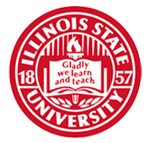Abstract
Simulation is a valid pedagogical tool used to teach students, observe student clinical skills, and to assess clinical competencies. During the COVID-19 pandemic, a lack of medical speech-language pathology placements required graduate programs to re-examine clinical training. Simulation has proven useful in providing an alternative and safe learning modality. Standardized patients, which are one simulation modality, provide increased standardization and higher fidelity than medical manikins. This is particularly true in the context of both student learning and demonstration of clinical communication skills (CCS) within a simulated learning environment where the simulated patient can interact authentically with the student clinician. CCS are important because they can lead to better treatment outcomes and strengthen the therapeutic alliance. The purpose of this study was to evaluate the evidence for a CCS training in the context of a speaking valve trial with a standardized tracheostomy patient. Results showed that students are demonstrating emerging skills or have already developed CCS in this context. Student questionnaire ratings suggest that this simulation was helpful to their learning as it provided a safe environment for them to practice valuable clinical skills. Simulation appears to be a viable modality to use when training CSD students to improve their CCS.
Recommended Citation
Stead, A.,
Tinsley, J.,
Mandulak, K.,
Michael, P.,
&
Deiner, H.
(2023).
Use of a Standardized Tracheostomy Patient Simulation to Evaluate Student Clinical Communication Skills.
Teaching and Learning in Communication Sciences & Disorders, 7(2).
DOI: https://doi.org/10.30707/TLCSD7.2.1690393489.718643




